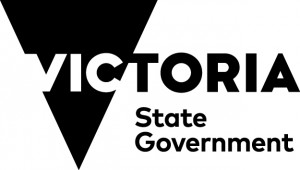Sports Clubs and Organisations Can Battle Violence Against Women
One in three women in Australia will experience violence from an intimate partner in her lifetime, and already this year, as of June 17, 44 women in Australia have been killed as a result of men’s violence.
Violence against women is more than a social and police issue. It’s highly detrimental to someone’s health. In fact, in Victoria, violence against women is the number one contributor to death and disability in women aged 15 to 44.
But violence against women is not inevitable – it is preventable.
VicHealth CEO Jerril Rechter said we can stop violence from happening in the first place.
“Violence against women takes many forms. It is more than slapping, punching and sexual violence – it can be a flippant remark among friends, a sexist joke in the workplace or controlling a partner’s finances. It impacts a woman’s physical and mental health.
“A huge number of sports clubs and associations are taking this issue seriously. They are sending a clear message to their players, members and families that violence against women is never acceptable - not on the field, not in the locker room, not at game day and not at club nights. However research tells us that this will not be enough to end violence. If we want to stop violence before it starts, if we really want to change the attitudes that lead to violence, we need to start talking about the root causes.” Ms Rechter said.
Locally and internationally, there is strong evidence showing that the main driver of violence is unequal power between women and men. Where there are inequalities of power and resources between women and men, violence is more likely to occur.
In a recent VicHealth survey, one in three Victorians had witnessed sexism in their sports club, workplace or among family and friends – including sexist attitudes, jokes and discrimination towards women. But less than half of those people had said or done anything about it at the time.
Ms Rechter said: “Many of them didn’t think they’d get support from other people. Men were more likely than women to feel they would know what to say or do, but were less likely than women to have actually said or done anything to stand up to sexism.”
In the same survey, almost 98% of Victorians said they expected their local sports clubs to provide an environment that makes girls and women feel welcome. And almost nine in 10 (86%) think local sports clubs should play a leadership role in the community by promoting respectful relationships between men and women.
“The great news is that there are lots of programs and services out there to help sports clubs that are willing to stand up and take violence against women seriously. For the clubs that are willing to take action, there are plenty of easy ways to start promoting equality for women and men in your very own code.
“VicHealth has recently released a new, user-friendly toolkit for sports called ‘Stepping In’. It’s a practical how-to guide for sports clubs and associations that want to take violence against women seriously and want to encourage their members to do the same. We have also been working with experts in the sports sector to build more welcoming and inclusive environments for girls and women.”
In the ‘Everyone Wins’ program, which is currently available through Monash Council and Maribyrnong Council, clubs learn how to bring more women and girls into the game – as players, spectators and supporters. VicHealth is also looking at new ways to increase female participation across a whole range of sports and recreation programs.
“What do these programs have in common? They make it easy for men to stand up and make a difference. Men can be part of the solution by challenging attitudes and everyday sexism and stereotypes which enable violence against women to continue.
“You don’t have to be a hero and you don’t have to stand out from the crowd. But if you think things can be improved in your club and you’re ready to get started, there’s never been a better time to stand up,” Ms Rechter added.
For more information about VicHealth’s ‘Stepping In’ program, visit https://www.vichealth.vic.gov.au/search/bystander-action-toolkit
You may also be interested in...
RATE CAPPING

In 2014 the Labor Government made an election commitment to cap council rates at the rate of inflation, keeping them in check with the cost of living
How Your Online Profile Affects Your Employment

Words: Angelique Lele, Operations Manager, Sportspeople More than a quarter of employers use social media to check out potential new hires, and Facebook is the site of choice, according to survey findings from Telstra
Panellists Announced for Vicsport Member Forum

Professor David Shilbury is the Foundation Chair in Sport Management and a former Head of the School of Management and Marketing (2002-07) at Deakin University




















